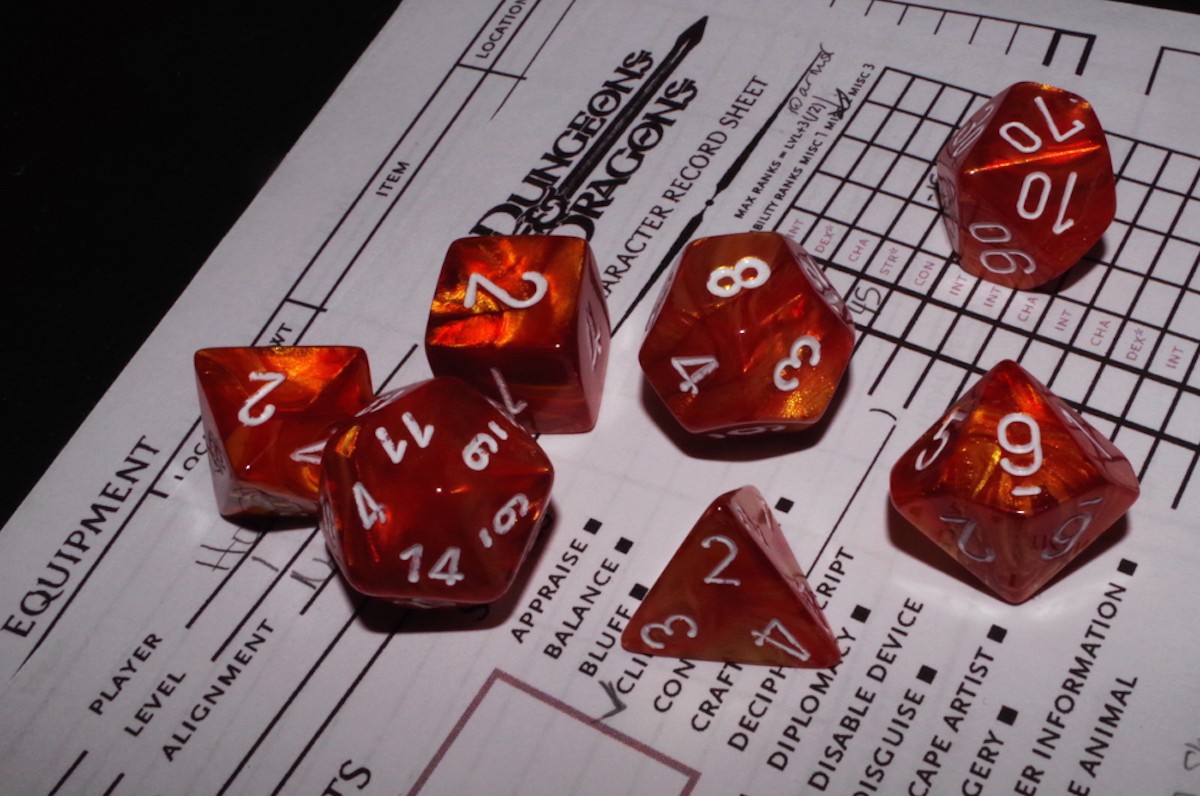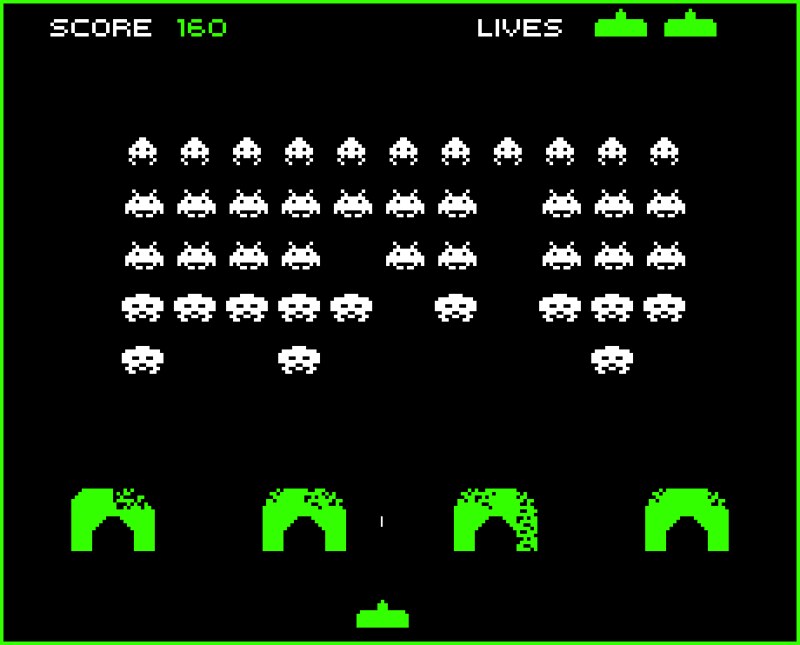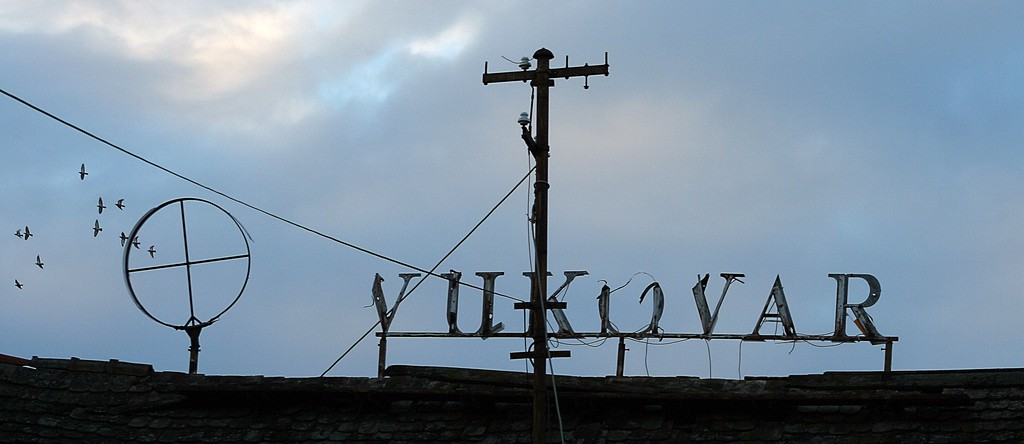Lit Mags
The Song that Holds the Last of Syria
MIZNA, a journal exploring Arab American culture, recommends “Everything Blooms” by Zeyn Joukhadar
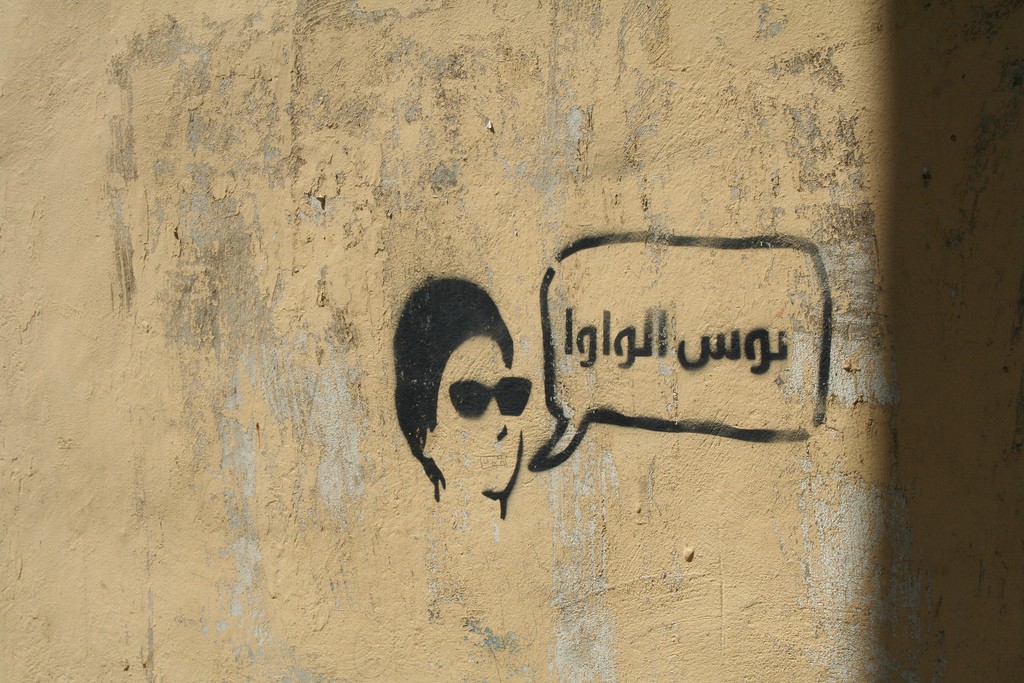
AN INTRODUCTION BY SONIA ALI
In “Everything Blooms,” Zeyn Joukhadar places the reader between a record shop in a small town in rural Pennsylvania and Homs, Syria, a city devastated by war. We are distinctly between the old and the new, the diaspora and the home-that-was, and between an old man and his eyeglasses.
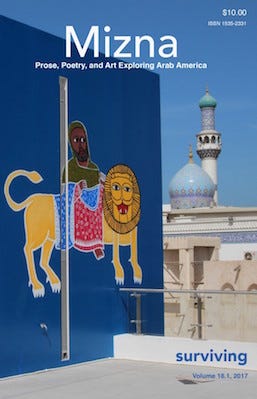 Basim is an older man, a record shop owner, and is nearly blind without his glasses. He is visited in his shop by a young boy whose father has recently passed away. The boy, named Nagib but who goes by Nate, says his father recalled Basim as the “only other Syrian in the whole country.” The reader knows this can’t be true, but the sentiment coupled with the fact that Basim did not know the boy’s father — in the small town or in Homs — sets the scene, places us in the in between. We are amid two Syrians, one is old and full of memory but hasn’t seen his home in “First twenty, then thirty, then forty years,” and the other is young, has never been to his father’s home, but watches videos of its destruction on his smart phone.
Basim is an older man, a record shop owner, and is nearly blind without his glasses. He is visited in his shop by a young boy whose father has recently passed away. The boy, named Nagib but who goes by Nate, says his father recalled Basim as the “only other Syrian in the whole country.” The reader knows this can’t be true, but the sentiment coupled with the fact that Basim did not know the boy’s father — in the small town or in Homs — sets the scene, places us in the in between. We are amid two Syrians, one is old and full of memory but hasn’t seen his home in “First twenty, then thirty, then forty years,” and the other is young, has never been to his father’s home, but watches videos of its destruction on his smart phone.
Basim hesitates and squints at Nate’s phone when Nate pulls up a video of his home. “What is this?” he asks. The boy responds, “Homs.” It is then that we see just how unrecognizable the city really is, and how distant the two are from their shared home, and from one another. This is how Joukhadar places us in the crossroads of a war, a home, and a home away from home — whether that’s rural Pennsylvania or Homs. And in doing so, she invites us to consider the way we process death and destruction in the twenty-first century.
Joukhadar, a Syrian American, writes this story to the soundtrack of an unnamed song by Umm Kulthum, one of the most beloved musicians out of the Arab world, playing in the record shop. Umm Kulthum, often a symbol of strength and resilience, “charges up with her voice like a cloud horse, rising on the wind. She repeats words, yearns like a caged bird.” Nate recognizes the song as his father’s favorite, and Basim asks him “How much do you understand?”
In this story, Joukhadar asks the the same question, both on and off the page.
Sonia Ali
Mizna
The Song that Holds the Last of Syria
Zeyn Joukhadar
Share article
“Everything Blooms”
by Zeyn Joukhadar
The cat has a tick in its neck. Even from this distance, Basim can see that. His glasses are the one thing he hasn’t lost yet. At times, he’s forgotten where he left his keys, misplaced his heart medication, lost his Sam’s Club membership card. He can’t afford to lose his glasses — without them, he can’t even see the numbers on the register.
“Here, kitty, kitty.” Basim clucks, crouches. The cat doesn’t seem afraid of anything. It hurries over to him, letting out a mewl that bounces and wobbles with each step. Basim strokes its white fur and glances past the end of his driveway, toward the red-faced bank barn, the pastured cows staring with slits for eyes from across the way. Up and down the country road — no one.
Everything Blooms (Electric Literature’s Recommended Reading Book 281)
“Why did I open a music shop in a town this small? Huh, kitty?” The cat rolls over on its back, exposing the matted fur on its belly. The sun’s warmed the pavement, and the cat stretches itself out, lolling its body from side to side. Basim eyes the tick, nestled in the white fur.
“I’ll be right back.” Basim gets up and goes inside. The bell on the music shop door chimes. Sundays are always slow, no customers. Sundays are for listening to music and thinking.
Basim fetches a pair of tweezers from the bathroom and dips them in rubbing alcohol. When he comes back out, the cat’s still lounging on its back, running its tongue over the pads of one paw. It narrows its eyes at him as he emerges, the bell clanging behind him.
Basim holds up the tweezers. “Something for that pest,” he says. He kneels and runs his palm over the cat’s spine. The cat arches into his hand, stretching its legs and curling its tail. It seems friendly enough.
“Hold still, now.” He presses the tweezers to the cat’s neck. It doesn’t twist away. Basim tugs the wriggling tick from the animal’s fur and tosses it to the pavement. He crushes it with his shoe.
“There, now,” he says. The cat gets lazily to its feet and stares at him. “Go home, now.” It doesn’t move. Basim stands and brushes himself off. He pretends to ignore the cat, turning to take in his shop sign: Basim’s. How proud he was when he first opened, how proud he is now.
When Basim opens the shop door, the cat follows him.
“Suit yourself,” he says. He pushes the door open, and the bell chimes, trembles. Basim makes his way back behind the register and presses play on the CD he was listening to. The shop speakers thrum to life, releasing a plaintive woman’s voice. The cat slinks between the rows of CDs, jumps on top of the counter. It settles next to Basim, curling up for a nap.
“Do you like Umm Kulthum?” Basim strokes the cat’s bone-white back, the same color as Basim’s hair and stubbled mustache. “She reminds me of home,” he says, leaning his elbows on the counter. “Things were more simple then. My mother used to make kunafeh when things were slow and the weather wasn’t too damp. You know kunafeh? It’s a cheese pastry. You soak it in sugar syrup with a few drops of rose water.” The cat buries its head in its paws, blocking out the world.
The bell chimes again, and the cat raises its head. A boy walks in, his T-shirt tight with sweat against his shoulders. Basim searches his memory — has he seen the boy on his bike before? He can’t seem to remember anything these days. Basim lowers his head as the boy browses the rows of CDs, past the singles, the top twenties arranged by year, past classical and hip hop. He stops in front of the foreign music section, still as a ghost, hovering. Basim looks away, turns down the Umm Kulthum album two notches. The boy scans the names of tracks.
Basim’s CD skips — he’s had it over a decade, a souvenir from his last trip to his native Syria, before the cataracts and the beginnings of his failing memory made him stop traveling.
“You found my cat.”
Basim looks up and jumps, the hair on his arms twitching. The boy is standing directly in front of the counter. When did he get there? The boy’s a haunting.
“Your cat?” Basim adjusts his glasses and frowns down at the boy. “Oh — she came this morning. Had some trouble with a tick.”
“It’s a he,” the boy says. “Name’s Max.”
“Max, then,” Basim says. “You should take him home before he wanders off again.”
“This was my dad’s favorite song,” the boy says. “Didn’t see the album on the shelf.”
Basim frowns at the boy again, over the rim of his glasses. “It’s not for sale.” Annoyance rises like an itch, and Basim wishes the boy would choose something else and leave him to himself. Sundays are his only day to relax, the only day he can play what he wants in the shop. The music helps him remember the old times, the good times. He remembers his mother and his grandmother, the laundry lines crisscrossed over the streets of Homs, digging through baskets of dried lentils in the souq on early mornings. Sometimes Basim feels his memories are trapped between the notes of Umm Kulthum like sticky grains of rice in a colander. He worries that someday that will be the only place they remain, once they’ve all drained out of the holes in his aging mind.
The boy fidgets. He reaches for the cat, who rolls away from him. “Did you know my dad?” he asks. “We moved into the red house down the road, past the steer farm. Last year. He got me a bike, said I could ride it, now we moved out of the city.” He pauses. “Dad saw your signs in the window, the big foreign music section. Said you were the only other Syrian in the whole county.”
“He said what?” Something warm and agitated comes to life inside Basim, squirming like the many-legged tick. The months of keeping to himself, the feeling that no one understands. The war has destroyed most of Homs, he knows, though he never lets himself watch the newscasts when they air. He doesn’t want to see it as it is now, metal wall-supports sprouting like hair from fields of gray rubble, the sickening slant of cracked rooftops, a child’s plastic slippers mangled in the street. Basim wants to remember the city where he was born when it was still green, when the women laughed out stories, when the men clapped and danced at the tables outside the cafes.
“My dad’s from Homs,” the boy says. Sweat tracks from his earlobe to the collar of his T-shirt, uncovering a deep tan under a layer of dry Pennsylvania dust. “Was, I mean.”
“Was?”
“He died six months ago.” The boy reaches up again to pet the cat. The animal lets him, doesn’t move or even open its eyes.
Basim almost says, In the war? Instead he says, “What happened?”
“Heart attack.” The boy doesn’t even look up, says it as though it’s the name of a track on his favorite album, a line from a comic book. “Mom thought the fresh air would do him good, get him to exercise more. But then he was gone.”
Basim says, “I’m sorry.” He imagines the cat slinking out the door behind the boy, being alone in the shop again. He feels a pang like loneliness, though he doesn’t think he’s felt lonely in years. He thinks to himself that death changes a kid. He says, “I’ll give you the CD on one condition.”
The boy looks up, his hand still buried in the scruff of fur at the back of the cat’s neck. “What’s that?”
“You’ll come here tomorrow and listen to it with me.”
The boy smiles. Basim thinks of his bicycle in Homs, the way he used to lean it up against the wall of his parents’ apartment building, making sure the handlebars were in the shade so they didn’t get hot while he was inside. Inside him is a summer warmer and wider than any Pennsylvania has ever seen.
The boy extends his hand. “Nagib,” he says, “but you can call me Nate.”
Basim shakes his hand. He ejects the CD, places it carefully in its jewel case. He hands it to the boy. “Nate,” he says. “Tomorrow.”
The bell chimes. The white cat follows Nate out the door.
When Nate returns, he brings his cat. Basim is happy to see them in spite of himself, in spite of the fact that he misplaced his cordless phone just that morning. Basim gets a stool from behind the counter, and Nate settles on top of it on the other side, the cat between them. Basim puts on Umm Kulthum. She charges up with her voice like a cloud horse, rising on the wind. She repeats words, yearns like a caged bird.
“How much do you understand?” Basim asks.
“Some.” The boy seems quieter than the day before, less forthcoming. Basim lets him be. He closes his eyes, pictures his childhood to the music. A five-minute ride to his aunt’s, ten minutes to the spot his grandmother once told him used to house a communal oven when the city was filled with horses and caravans. The trellis of roses in their neighbor’s garden. Basim remembers being unable to fathom how old his grandmother was, being overwhelmed by the idea of generations stretching into generations, centuries of change.
“How long you lived here?”
Basim opens his eyes and smiles, tugging at his white mustache. “Oh,” he says, “many years. First twenty, then thirty, then forty years. I’ve lived longer in Lancaster County than in Homs.”
“Dad used to say it doesn’t leave you.”
“A very deep thought from such a small boy,” Basim says.
Nate is staring at him with those dark eyes, then flicks them away to the cat at the last second. “Max loved him,” he says. He massages the back of the cat’s neck, gently pulling on loose rolls of flesh. The cat yawns and purrs.
“Sometimes it’s good to talk about it,” Basim says.
Nate looks down and away, toward the rows of CDs. “Dad used to tell me about when he was my age, where he grew up.” He reaches into his pocket. “You seen what’s happened?” he asks. “There’s nothing left. Nothing.”
Basim squints while Nate taps and swipes at his phone. Images come up, video. Nate hands the phone to Basim. He holds it up to his face. He’s flying above the wreckage of some ancient city — no, these are apartment buildings, concrete walls, flat ceilings with satellite dishes clinging to them like thousands of ears.
“What is this?” Basim whispers.
Nate scratches the cat behind the ears. “Homs.”
A piece of Basim is carved out. It slips out under his ribs, red, inconsolable. That familiar pull of what is loved but slowly forgotten, the unbearable certainty that something beautiful has been snuffed out forever, like a piece of music erased, corrupted. Basim closes his eyes and imagines the walls painted again, bright as anything, turning slabs of brick and plaster to gold, rebar to ruby. Basim opens his eyes. The city bleeds his mother’s blood, his grandmother’s.
“Didn’t know if you’d already seen it,” Nate says.
“No.” Basim blinks, compares his memory to reality. For a moment, he’d felt lucid and whole, as though the past were more real than the present, as though a part of him had just laid his bicycle against his mother’s apartment wall. He shudders. That wriggling pain again, the sheer impossibility of hope, hard as granite. “How easy it is for things to break apart,” he says, and his old voice cracks.
Nate scoots his stool to one side, reaches his arm around the cat. The video stops. He takes the phone back and stuffs it in his pocket. Basim lets his head hang, his hands flat on the counter, listening to his breath. He shuts his eyes again. For the first time, he wishes he’d lost his glasses, wishes he could will himself to toss them down and smash the lenses so he only had to hear, rather than see.
Nate reaches over and sets one of his hands on the counter next to Basim’s, just touching his knuckles. They look at each other.
“Dad said the same thing,” Nate says. The cat stretches, rippling the muscles on its shoulder blades. “Said at least he remembered it the way it used to be. The taste of the rice, lentils. Olives. Kunafeh.”
Basim nods. “Kunafeh.” Clammy warmth spreads from Nate’s chubby fingers into Basim’s age-spotted hand. All around them, the rose of Umm Kulthum’s voice climbs the wall as though it were a trellis, and everything blooms.




